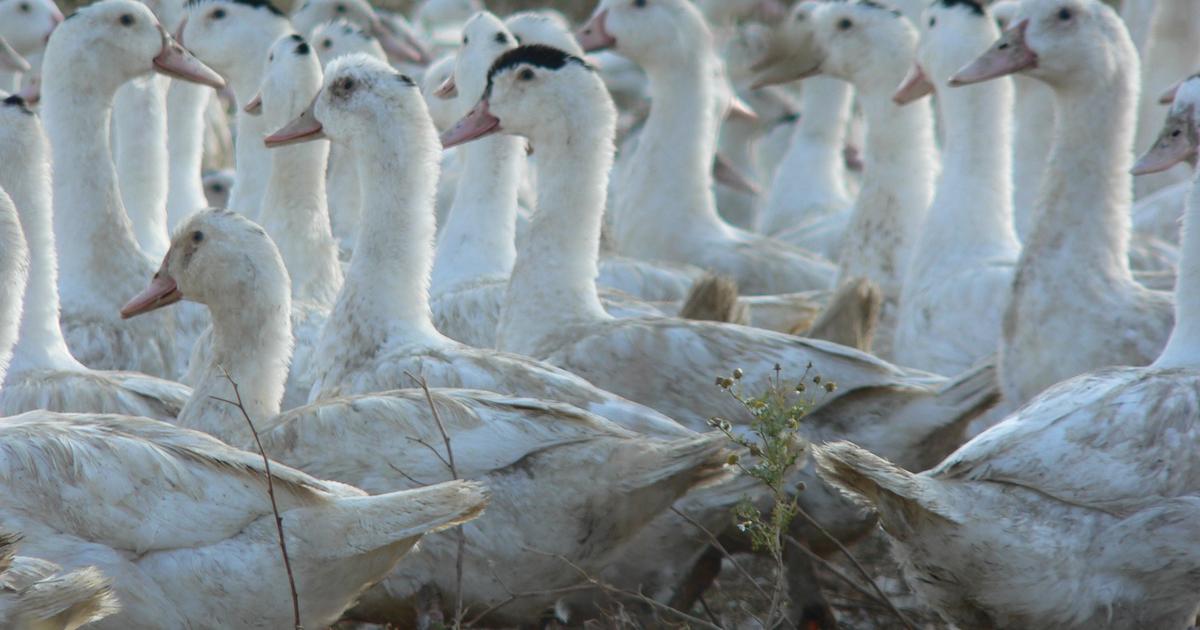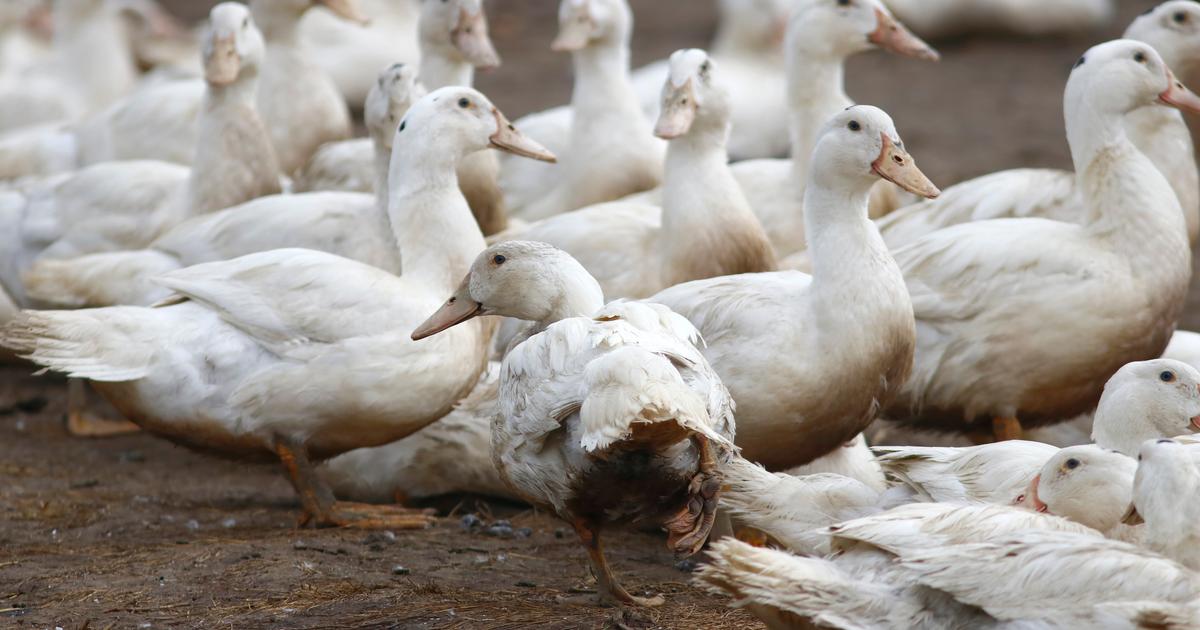Enlarge image
Corona vaccination in Johannesburg, South Africa: just seven percent of the population of Africa are currently vaccinated
Photo: SUMAYA HISHAM / REUTERS
It was actually clear to everyone. For months, experts in Africa have been warning that the low vaccination rate will sooner or later lead to new mutations of the coronavirus. “We keep talking about the fact that the rest of the world is not safe either, as long as large parts of the African population are not vaccinated. Now the time has come. Hopefully Omikron will lead the richer countries to rethink, ”says epidemiologist Catherine Kyobutungu, who heads the Africa Population and Health Research Center.
Omikron has rekindled the debate about vaccination fairness. Only about seven percent of Africa's 1.3 billion inhabitants are fully vaccinated. Larger quantities of vaccine doses arrived much too late in most African countries; the Global North had literally bought the market empty for a long time. The quantities supplied are still insufficient to supply the majority of the population.
But in the meantime another problem has arisen: In the past seven weeks, suddenly as many vaccine doses have arrived on the African continent as in the seven months before. It is not uncommon for these deliveries to arrive with a brief advance warning, sometimes just a few weeks before the shelf life expires. The rich north wants to get rid of its surplus and presents itself as a noble donor.
"The process was completely erratic," says expert Catherine Kyobutungi. Because the replenishment could not be planned, vaccination campaigns could hardly be organized sensibly. “We missed the moment when we could have mobilized people en masse. We have to pay for that now. ”Especially around the coming Christmas season, many people would travel from the cities to the villages where they would no longer have access to vaccines. Valuable time in the fight against the virus is lost.
The World Health Organization (WHO) also shares this concern. Richard Mihigo, the head of the vaccination campaign in Africa, told SPIEGEL: “The erratic deliveries have deterred the population from getting vaccinated. They didn't know if they would get their second dose, no reliable information could be released. Now that there are finally more vaccines, we have to restore confidence. "
In fact, several African countries are currently struggling to get their vaccine into the upper arms of their residents.
Vaccine skepticism is still great in many countries, and conspiracy myths are widespread.
And where there were large-scale vaccination campaigns, the advertised vaccine was no longer available shortly afterwards due to a lack of supplies.
A vicious circle that is getting harder and harder to break.
This problem is particularly evident in South Africa at the moment.
After initial shortages, the country now has vaccine in stock for the next five months.
But only a quarter of the population is vaccinated, and the campaign is stalling.
The country just had to ask several manufacturers to postpone the next deliveries so that the cans do not expire.
The vaccinations are currently more necessary than ever. »We know enough about the new variant to understand what protects against transmission and against severe processes. Vaccinations are still our best tool, ”said South African President Cyril Ramaphosa on Sunday. "Now a large-scale vaccination campaign is more important than ever," demands WHO expert Richard Mihigo. But in addition to the vaccination skepticism, numerous logistical problems, a lack of cold chains and ailing health systems remain major challenges in many African countries.
By the end of the year, the WHO had set itself the goal of immunizing 40 percent of the population in Africa against Covid-19. But only five countries have achieved this goal so far, for the vast majority of the continent it is a long way off. “Some countries would have to increase their vaccination speed tenfold. The challenges are enormous, ”says Mihigo. There is currently no lack of supplies in these countries, rather the necessary infrastructure.
South Africa is now threatening to take a tougher pace: The President announced that he would examine some kind of mandatory vaccination. Only those who have been vaccinated should have access to public facilities, to their workplace or to means of transport. A task force will now deal with which measures are sensible and proportionate. Zambia has now also announced that public service employees are required to be vaccinated, and government buildings are only to be entered there with a vaccination card. The tone of the debate is intensifying.
Kenya also wants to take action against vaccine skeptics.
The Minister of Health announced last week that in addition to public services and transport, bars and restaurants will also be available from December 21st.
should only be accessible to vaccinated people.
The project met with massive criticism and is already being challenged in court.
The human rights organization Amnesty International has complained that the Kenyan government will not be able to provide enough vaccinations by the end of December to permit such an ordinance
enforce.
Because so far not even nine percent of the population has been fully vaccinated.
“This ordinance will prevent millions of people from earning a living.
This is not how we will win the fight against Covid, «says Amnesty country chairman Irungu Houghton.
Epidemiologist Catherine Kyobutungu also calls the project premature. “You can't announce something like this without ensuring adequate supplies. And this also means that every resident can get the vaccine quickly and without problems. ”This is currently also failing due to a lack of communication: the government hardly explains which vaccine is available where. The Kenyans help themselves through social media and make the current supply situation in individual vaccination centers public.
One of these vaccination centers is the MPShah hospital in Kenya's capital, Nairobi. There is currently no shortage of vaccination doses, says the responsible ward manager Shamsa Ahmed. Everyone can be taken care of. And the government’s drastic announcement is already having an impact: “Since then we have seen a significant increase in the number of people willing to be vaccinated. Above all, it is the fear that people would otherwise not come to their families for Christmas. And worries about the new mutant also plays a role. «Many would ask about the Johnson & Johnson vaccination, since one is considered fully vaccinated after just one injection.
But it is much more important to fight vaccination skepticism locally through campaigns, says Shamsa Ahmed.
But this requires a permanently reliable supply of vaccines.
"If we do not overcome global injustice, then we will never break the vicious circle," fears the station manager.
The call for the vaccine patents to be released is getting louder again so that more manufacturers can produce large quantities - in the best case also on the continent itself.
But it will be at least months before corona vaccines can be completely manufactured in Africa and not just bottled.
In the meantime, the continent remains dependent on supplies from richer countries.
And there is a risk that new mutations will keep forming.
This contribution is part of the Global Society project
Expand areaWhat is the Global Society project?
Reporters from
Asia, Africa, Latin America and Europe
report under the title “Global Society”
- on injustices in a globalized world, socio-political challenges and sustainable development.
The reports, analyzes, photo series, videos and podcasts appear in a separate section in SPIEGEL's international department.
The project is long-term and is supported by the Bill & Melinda Gates Foundation (BMGF).
A detailed FAQ with questions and answers about the project can be found here.
AreaWhat does the funding look like in concrete terms?
The Bill & Melinda Gates Foundation (BMGF) has been supporting the project since 2019 for an initial three years with a total of around 2.3 million euros - around 760,000 euros per year.
In 2021, the project was extended by almost three and a half years until spring 2025 on the same terms.
Are the journalistic content independent of the foundation?
Yes.
The editorial content is created without the influence of the Gates Foundation.
Do other media have similar projects?
Yes.
Big European media like "The Guardian" and "El País" have set up similar sections on their news sites with "Global Development" and "Planeta Futuro" with the support of the Gates Foundation.
Have there already been similar projects at SPIEGEL?
In the past few years, SPIEGEL has already implemented two projects with the European Journalism Center (EJC) and the support of the Bill & Melinda Gates Foundation: the “Expedition ÜberMorgen” on global sustainability goals and the journalistic refugee project “The New Arrivals” within the framework several award-winning multimedia reports on the topics of migration and displacement have been produced.
Where can I find all publications on global society?
The pieces can be found at SPIEGEL on the topic Global Society.















